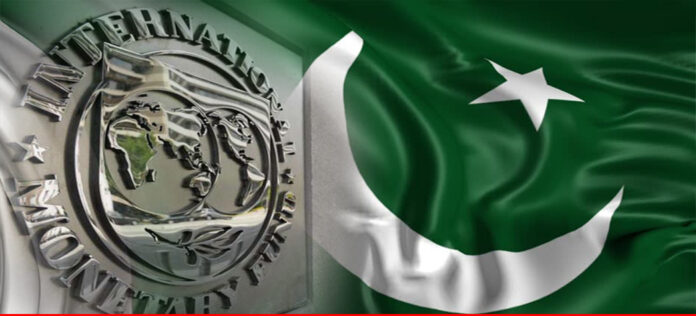Pakistan and the the International Monetary Fund (IMF) will start staff-level discussions for the release of sixth tranche under the $6 billion Extended Fund Facility (EFF) on September 29.
Federal Minister for Finance, Shaukat Tarin, will be in Washington for discussions with top IMF officials from Oct 15 to Oct 17, which is the last day of Tarin’s tenure as federal finance minister as a non-elected person who was appointed by the premier under Article 91(9) of the Constitution.
According to a report by Dawn on Sunday, a list of issues to be discussed was received from the fund whereas the final approval will be made in Washington by middle of next month.
On June 24, IMF spokesman Gerry Rice had declined to say if disbursements under that programme had been halted but said further discussions were needed about Pakistan’s fiscal spending plans, structural reforms, particularly in the tax and energy sectors, and social spending.
Tarin had said it was not possible for Pakistan to get out of the IMF programme at a time when the economy is reviving.
“It is not possible to get out of the IMF programme at this time,” Tarin had said, adding: “We were forced to go to the IMF.”
“This time the IMF was not friendly with us and the programme was front-loaded and tough,” he further said, comparing the current programme to previous ones with the lender.
He said that the power sector measures would be sustainable and will increase revenue. “This is what IMF wants from Pakistan,” he had remarked.
In July 2019, the IMF had approved a 39-month $6bn EFF arrangement for Pakistan to support Islamabad’s economic reform programme.
The government has paused the IMF programme for three months and implements its indigenous policy measures to shore up revenue instead of putting an extra burden on the existing taxpayers.
Tarin has said that the revenue performance in the first two months is beyond expectations.
Earlier last week, the Independent Evaluation Office (IEO) of the International Monetary Fund (IMF) stated that case studies highlight the need for more cautious assumptions on feasibility and growth payouts of structural reforms in Pakistan.
The IEO has released its report “Growth and adjustment in IMF-supported programmes”, which assesses how well IMF-supported programmes have helped to sustain economic growth, while delivering adjustment needed for external viability.
The report noted that in Jordan, Pakistan, and Tunisia, Fund staff underestimated the complexity of the political transition and the impact of intervening political, security-related and regional shocks.
It stated that several case studies emphasise that staff had unrealistic expectations regarding the feasibility and growth payoffs of reforms.




